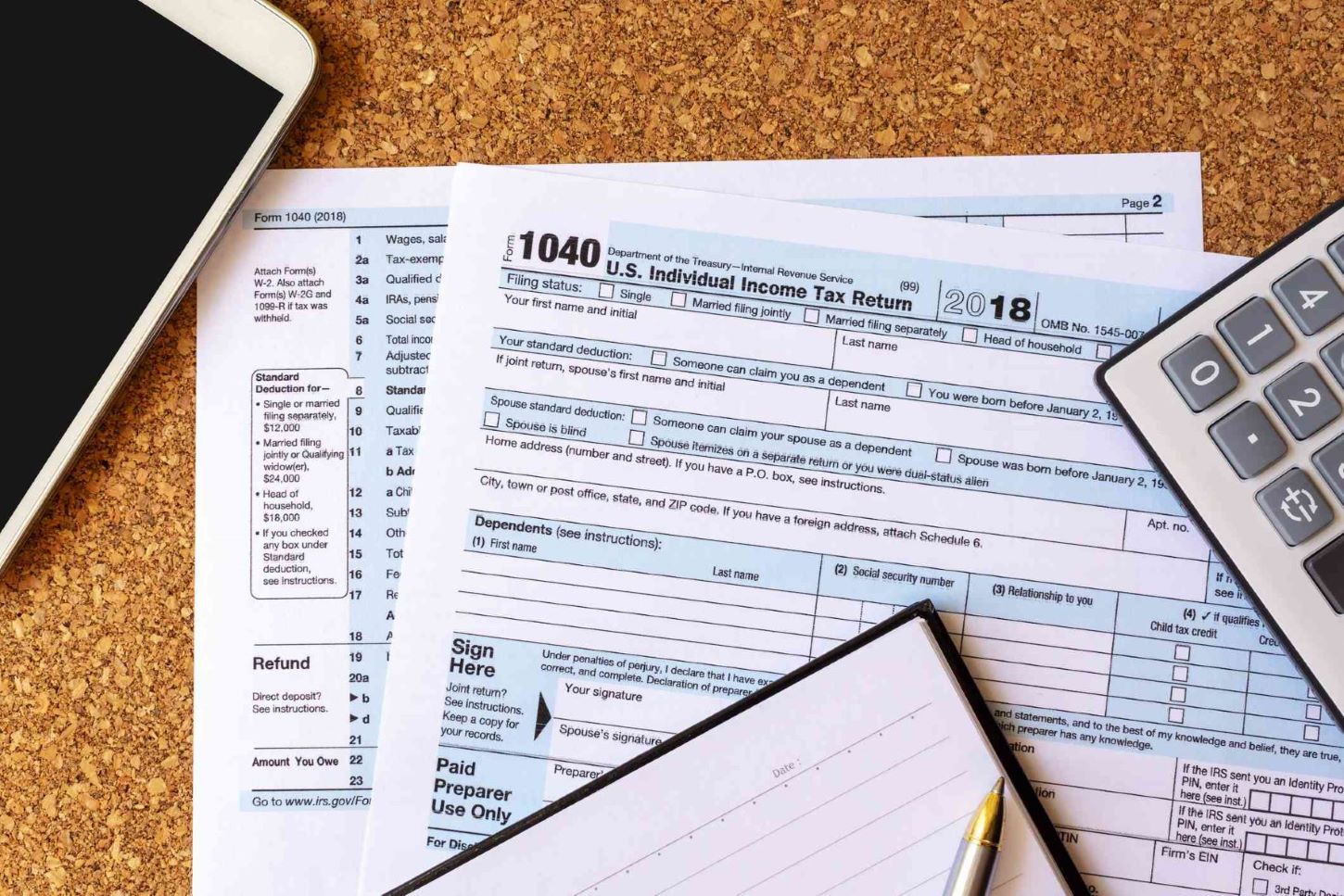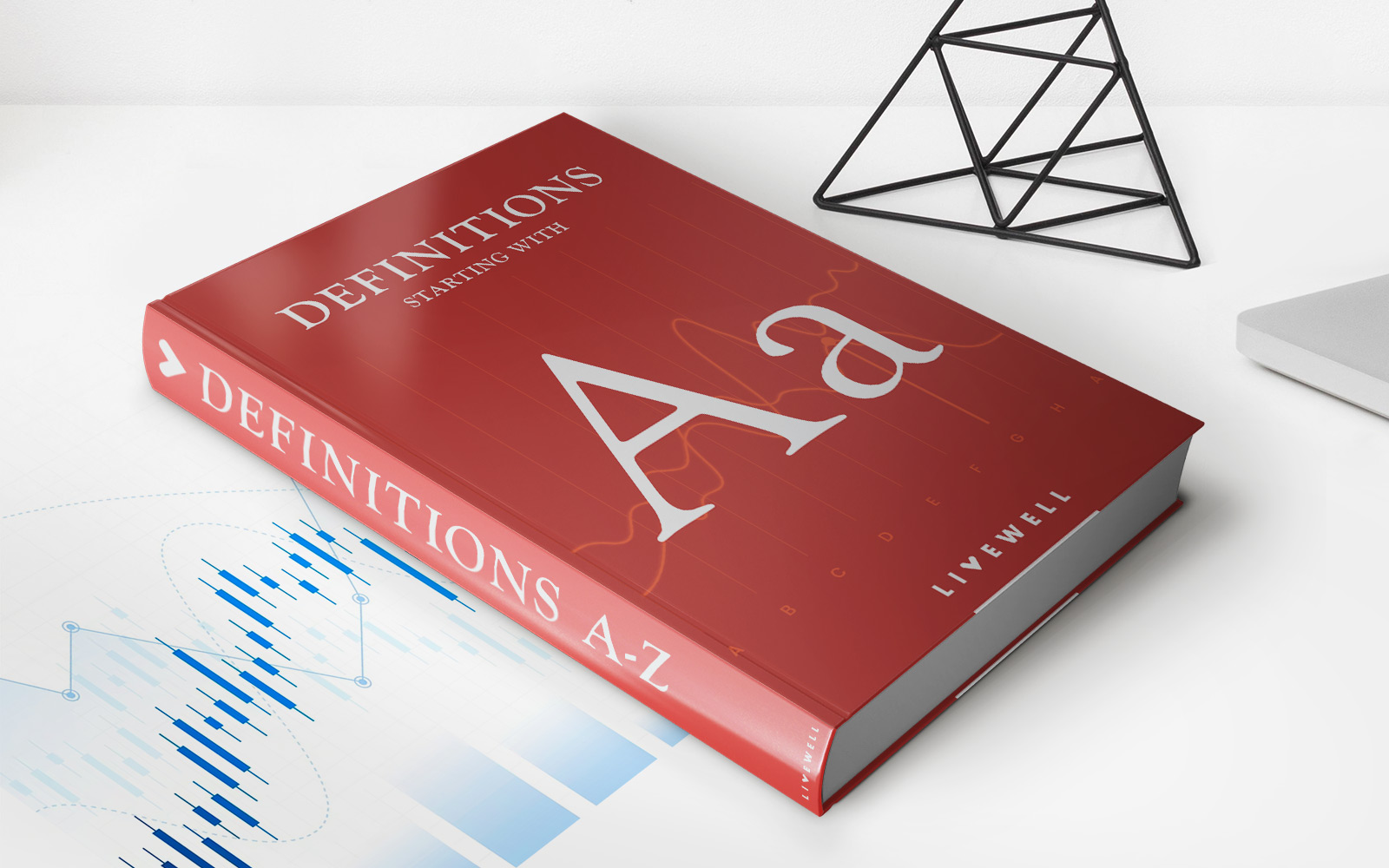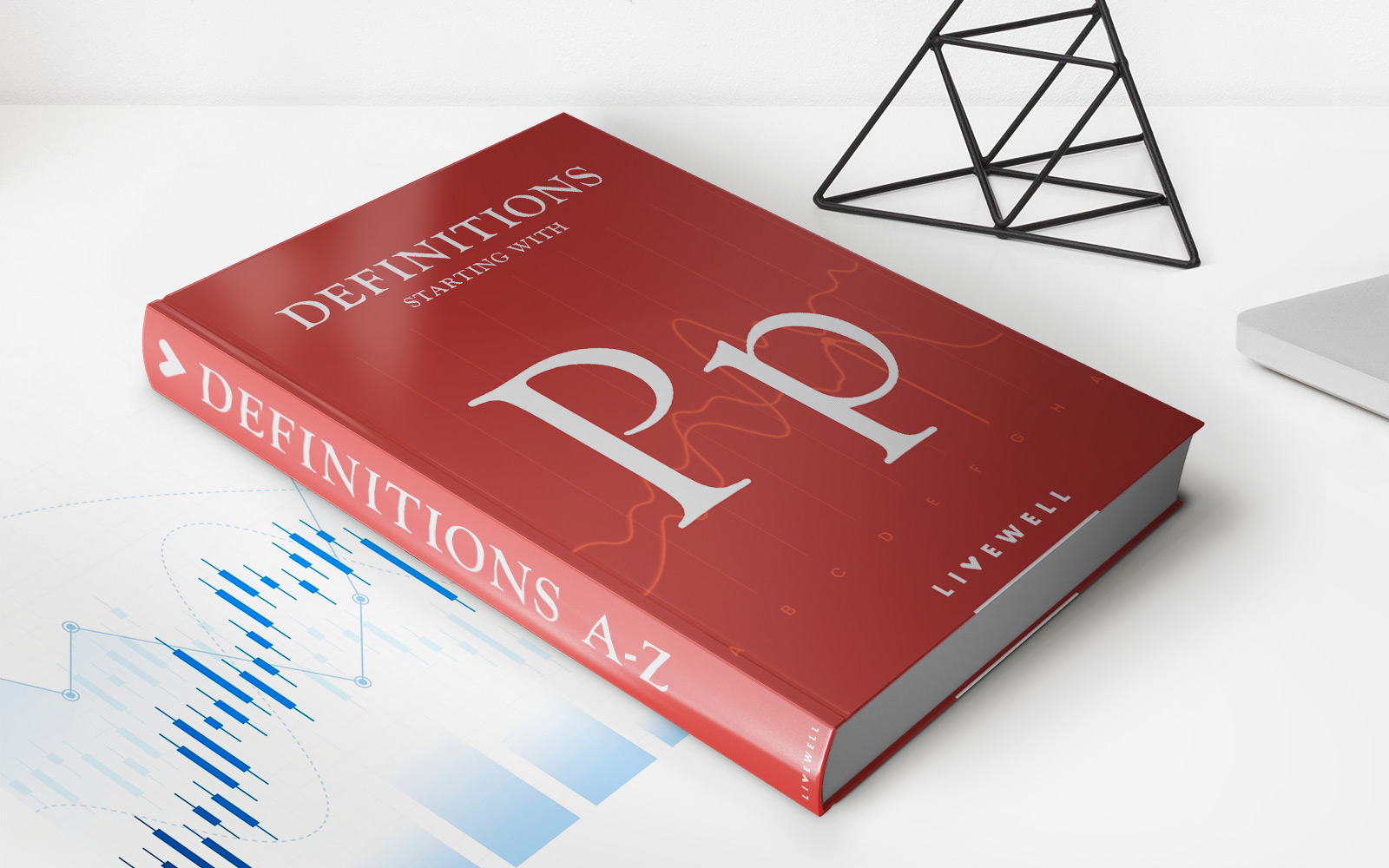

Finance
What Money Can The IRS Not Touch?
Published: November 1, 2023
Discover the secrets of protecting your finances. Find out what money the IRS cannot touch and safeguard your financial future.
(Many of the links in this article redirect to a specific reviewed product. Your purchase of these products through affiliate links helps to generate commission for LiveWell, at no extra cost. Learn more)
Table of Contents
- Introduction
- Retirement Accounts
- Life Insurance Proceeds
- Personal Belongings and Household Goods
- Homestead Exemptions
- Social Security Benefits
- Child Support Payments
- Veterans’ Benefits
- Workers’ Compensation Benefits
- Disability Benefits
- Public Assistance Benefits
- Educational Assistance
- Certain Trusts
- Pensions and Annuities
- Health Savings Accounts
- IRAs Transferred to Charitable Organizations
- Certain Types of Property
- Conclusion
Introduction
When it comes to managing your finances, it’s important to be aware of what assets are protected from creditors and financial obligations. Whether you’re dealing with mounting debt or simply looking for ways to safeguard your hard-earned money, understanding what money the IRS cannot touch can provide you with peace of mind and financial security.
While the Internal Revenue Service (IRS) has the authority to levy and seize assets to satisfy unpaid taxes, there are certain types of income and assets that are legally protected. These protections exist to ensure that individuals and families have the means to support themselves and maintain a basic standard of living.
In this article, we will explore various categories of assets and income that the IRS cannot touch. From retirement accounts to disability benefits, understanding these exemptions can help you make informed decisions about your finances and protect the assets that matter most to you.
It’s important to note that these protections may vary depending on the specific circumstances and applicable laws in your state. Consulting with a financial advisor or tax professional is always recommended to assess your unique situation and ensure compliance with relevant regulations.
Retirement Accounts
One of the most significant assets that the IRS cannot touch is funds held in qualified retirement accounts. These accounts include 401(k) plans, individual retirement accounts (IRAs), and pension plans.
Retirement accounts enjoy a special protected status under the law, making them off-limits to the IRS when it comes to satisfying tax obligations. This means that your contributions and earnings within these accounts are shielded from collection efforts by the IRS.
However, it’s crucial to note that there are limits to the protection offered by retirement accounts. For example, if you decide to withdraw funds from a retirement account before reaching the eligible age, you may be subject to early withdrawal penalties and taxes.
Additionally, it’s essential to understand that once you start taking distributions from your retirement account, those funds are taxable. However, they are not subject to seizure by the IRS to satisfy outstanding tax debts.
It’s worth mentioning that the degree of protection for retirement accounts can vary depending on the type of account and the applicable state laws. Different states may have different exemption amounts, so consulting with a financial advisor or tax professional is advisable to fully understand the level of protection you have for your retirement savings.
In summary, retirement accounts offer a valuable shield against IRS collection efforts. While these accounts are not completely exempt from taxation, they generally enjoy strong legal protections that make them secure assets for your future.
Life Insurance Proceeds
Another type of asset that the IRS typically cannot touch is the proceeds from a life insurance policy. When a policyholder passes away, their beneficiaries receive a death benefit payout from the insurance company. This payout is generally tax-free and is not subject to seizure by the IRS.
Life insurance proceeds are protected because they are considered to be the property of the beneficiaries rather than the deceased individual’s estate. As a result, they are typically exempt from claims made against the estate by creditors or the IRS.
It’s important to note that this protection applies to the actual life insurance proceeds received by the beneficiaries. Any interest or dividends earned on the policy may still be subject to taxation, so it’s essential to consult with a tax professional to understand the specific tax implications of your life insurance policy.
Additionally, it’s crucial to ensure that the life insurance policy is properly structured to provide optimal protection from creditors or the IRS. Naming specific beneficiaries and keeping the policy separate from the estate can help safeguard the proceeds for your loved ones.
However, it’s worth mentioning that if the policyholder has outstanding debts or liabilities, the life insurance proceeds may be vulnerable to claims by creditors. In this case, the specific laws in your state will determine the extent to which these proceeds can be protected.
In summary, life insurance proceeds generally enjoy protection from IRS claims and creditors. However, it’s essential to review your specific policy, its beneficiaries, and the applicable state laws to ensure proper protection for your loved ones.
Personal Belongings and Household Goods
When it comes to your personal belongings and household goods, the IRS generally does not have the authority to seize or liquidate these assets to satisfy unpaid taxes. Examples of personal belongings and household goods include furniture, clothing, jewelry, appliances, and electronics.
The reason for this protection is that these items are typically considered necessary for maintaining a basic standard of living. It would be unreasonable for the IRS to take away essential items that individuals and families rely on for day-to-day life.
However, it’s important to note that this exemption has limitations. If you own expensive luxury items or valuable collections, such as rare artwork or high-end vehicles, these assets may not be fully protected. In certain cases, the IRS may be able to seize and sell these assets to satisfy outstanding tax debts.
Additionally, it’s crucial to understand that the IRS has the authority to place a lien on property, including personal belongings, if it determines that the assets could be sold to satisfy tax obligations in the future. This lien serves as a legal claim against the property, which could impact your ability to sell or transfer ownership of the assets.
Overall, while personal belongings and household goods enjoy a level of protection from IRS collection efforts, it’s important to be mindful of any valuable or luxury items that may be subject to seizure. Consulting with a tax professional can help you understand the specific rules and limitations that apply to your assets.
Homestead Exemptions
Homestead exemptions are legal protections that vary by state and allow homeowners to shield a portion of the equity in their primary residence from creditors and the IRS. These exemptions are designed to ensure that individuals and families have a place to live and are not left homeless due to financial hardships.
The specific amount of the homestead exemption varies depending on the state in which you reside. Some states offer generous homestead exemptions, allowing homeowners to protect a significant portion of their home’s value, while others have more limited exemptions.
It’s important to note that the homestead exemption typically applies to the individual’s primary residence and not to additional properties or investment properties. The intention is to protect the place where the homeowner and their family live.
In addition to protecting the equity in the home, the homestead exemption can also provide protection from forced sale in certain situations, such as bankruptcy or foreclosure proceedings.
It’s worth mentioning that the homestead exemption does not exempt the homeowner from paying property taxes or other obligations related to the property. These exemptions primarily serve to protect a specific amount of equity in the home from creditors and the IRS.
Understanding the homestead exemption laws in your state is essential for protecting your home and ensuring its security. Consulting with a knowledgeable attorney or tax professional can provide you with guidance on the specific homestead exemption laws that apply to your situation.
Social Security Benefits
Social Security benefits are a crucial source of income for many retirees, disabled individuals, and their dependents. The good news is that the IRS generally cannot touch or garnish Social Security benefits to satisfy unpaid taxes.
These benefits are governed by the Social Security Act, which provides specific protections against collection efforts by the IRS. Social Security benefits are considered essential income for meeting basic living needs, and thus they are typically shielded from seizure or garnishment.
However, it’s important to note that there are certain exceptions to this rule. If you owe federal taxes, the IRS can withhold a portion of your Social Security benefits through the Federal Payment Levy Program. The amount that can be withheld is subject to certain limits, and it varies depending on your individual circumstances.
It’s also worth mentioning that while the IRS cannot directly seize your Social Security benefits, they can still levy other assets or income sources to satisfy your tax debts. If you have other sources of income or assets, the IRS may target those instead of your Social Security benefits.
Additionally, it’s crucial to understand that state laws regarding creditor protection for Social Security benefits may vary. Some states offer additional protections, prohibiting creditors from garnishing your Social Security benefits for other types of debts, such as medical bills or credit card debts.
In summary, Social Security benefits generally enjoy strong protections against IRS collection efforts. While there are exceptions and limitations to these protections, these benefits are vital in providing financial stability for retirees and disabled individuals.
Child Support Payments
Child support payments, which are intended to provide financial support for a child’s well-being and upbringing, are typically protected from IRS collection efforts. These payments are considered essential for the care and support of dependent children, and as such, they are exempt from seizure by the IRS to satisfy unpaid taxes.
Child support payments are governed by state laws, and the enforcement and collection of these payments are handled through the appropriate state agencies. The IRS does not have jurisdiction over child support matters and cannot intercept or garnish child support payments for tax purposes.
It’s important to note that the protection applies specifically to child support payments and not to other forms of financial support or alimony. Different rules and regulations may apply to spousal support or alimony payments, and they may be subject to IRS collection efforts depending on the circumstances.
While child support payments generally receive strong protection, it’s essential to ensure that the payments are made in accordance with the applicable court orders or agreements. Failure to comply with child support obligations can result in legal consequences, including wage garnishment or other enforcement actions determined by the state authorities.
If you’re facing difficulties in meeting your child support obligations due to financial hardships, it’s important to communicate with the appropriate state agency and seek legal counsel to address the situation. They may be able to assist with modifying the child support order based on your current financial circumstances.
In summary, child support payments are typically protected from IRS collection efforts. However, it’s crucial to fulfill your child support obligations as required by the court or applicable agreements to avoid legal consequences and maintain the financial well-being of your child.
Veterans’ Benefits
Veterans’ benefits provide crucial financial support and services to veterans and their dependent family members. These benefits, which range from disability compensation to education assistance, are generally protected from IRS collection efforts.
The Department of Veterans Affairs (VA) administers and oversees various benefit programs for veterans, and these benefits are typically exempt from seizure by the IRS to satisfy unpaid taxes. The VA has its own set of rules and regulations that govern the distribution and protection of veterans’ benefits.
One common type of veterans’ benefit is disability compensation, which provides financial assistance to veterans who have suffered service-related injuries or disabilities. Disability compensation is protected from IRS collection efforts, allowing veterans to receive the financial support they need without worrying about their benefits being taken by the IRS.
Other veterans’ benefits, such as pensions, educational assistance, and housing support programs, also enjoy protections against IRS collection efforts. These benefits are intended to help veterans and their family members maintain a stable and secure quality of life, and the government recognizes the importance of safeguarding these benefits.
While veterans’ benefits are generally protected from IRS collection efforts, it’s important to note that they may still be subject to other legal obligations, such as child support or alimony payments. In such cases, portions of veterans’ benefits may be allocated to fulfill these requirements as determined by the court or applicable laws.
If you’re a veteran and receive VA benefits, it’s advisable to consult with a knowledgeable tax professional or legal advisor to understand the specific protections and obligations related to your benefits. They can provide guidance on how to maximize your benefits while ensuring compliance with any legal requirements.
In summary, veterans’ benefits are typically shielded from IRS collection efforts. These benefits provide crucial support to veterans and their families, and maintaining their protection is essential to ensure the well-being of those who have served our country.
Workers’ Compensation Benefits
Workers’ compensation benefits are a form of insurance that provides financial assistance and medical coverage to employees who suffer work-related injuries or illnesses. These benefits are generally protected from IRS collection efforts.
Workers’ compensation benefits are administered by state agencies and are designed to ensure that injured workers receive appropriate medical treatment and financial support during their recovery. These benefits typically include compensation for medical expenses, lost wages, and vocational rehabilitation.
Because workers’ compensation benefits are intended to assist injured workers in their time of need, they are typically exempt from seizure by the IRS to satisfy unpaid taxes. This protection is in place to ensure that injured workers can receive the necessary support without the additional burden of their benefits being taken by the IRS.
However, it’s important to note that if you receive a lump-sum settlement for your workers’ compensation claim, the taxability of that settlement may vary. Depending on the circumstances and the state laws, a portion of the settlement amount may be subject to taxation.
In some cases, if you receive Social Security Disability Insurance (SSDI) benefits in addition to workers’ compensation benefits, a portion of your SSDI benefits may be reduced to account for the workers’ compensation benefits you receive. This is known as an offset and is intended to prevent double-dipping or receiving duplicate benefits.
If you’re unsure about the tax implications or offset rules related to your workers’ compensation benefits, it’s recommended to consult with a tax professional or a workers’ compensation attorney who can provide guidance based on your specific situation and the laws in your state.
In summary, workers’ compensation benefits are generally protected from IRS collection efforts. These benefits are crucial for supporting injured workers and ensuring their financial stability during their recovery.
Disability Benefits
Disability benefits provide financial support to individuals who are unable to work due to a physical or mental impairment. These benefits are typically protected from IRS collection efforts, ensuring that disabled individuals can receive the financial assistance they need without fear of their benefits being seized to satisfy unpaid taxes.
There are two primary types of disability benefits: Social Security Disability Insurance (SSDI) and Supplemental Security Income (SSI). Both of these programs provide income assistance to individuals with disabilities, but they have different eligibility requirements and funding sources.
SSDI is funded through Social Security taxes and provides benefits to individuals who have a qualifying work history and have paid into the Social Security system. SSI, on the other hand, is a needs-based program funded by general tax revenues and provides benefits to individuals with limited income and resources.
Both SSDI and SSI benefits are protected from IRS collection efforts. The IRS cannot seize or garnish these benefits to satisfy unpaid taxes.
However, it’s important to note that if you receive disability benefits along with other sources of income, such as wages or investment income, those additional income sources may still be subject to IRS collection efforts. The protection primarily applies to the disability benefits themselves.
It’s also worth mentioning that disability benefits may be subject to income taxation depending on your total income. If you have other taxable income in addition to your disability benefits, a portion of those benefits may be taxed.
If you’re unsure about the tax implications or other obligations related to your disability benefits, it’s advisable to consult with a tax professional or a disability benefits attorney who can provide guidance based on your specific circumstances.
In summary, disability benefits are generally protected from IRS collection efforts. These benefits are crucial for providing financial support to individuals with disabilities, ensuring their well-being and quality of life.
Public Assistance Benefits
Public assistance benefits, also known as welfare benefits, provide essential financial support to individuals and families facing economic hardship. These benefits, which include programs like Temporary Assistance for Needy Families (TANF) and the Supplemental Nutrition Assistance Program (SNAP), are typically protected from IRS collection efforts.
The purpose of public assistance benefits is to ensure that vulnerable individuals and families have access to basic necessities, such as food, shelter, and healthcare, during times of financial need. Therefore, these benefits are generally exempt from seizure by the IRS to satisfy unpaid taxes.
If you receive public assistance benefits, it’s important to understand that they are means-tested programs. This means that eligibility is typically based on income and asset limits. Therefore, while public assistance benefits themselves are protected from IRS collection efforts, other income or assets you may have could still be subject to IRS collection.
It’s also worth noting that tax implications can vary for certain public assistance benefits. For example, while SNAP benefits are not considered taxable income, other benefits like unemployment compensation may be subject to federal income taxes.
If you have questions or concerns regarding the tax implications or eligibility for public assistance benefits, it is advisable to consult with a tax professional or a social services agency to better understand the specific rules and regulations that apply to your situation.
Overall, public assistance benefits play a critical role in providing temporary financial support to those in need. While the IRS generally cannot seize these benefits, it’s important to consider any other assets or income you may have that could potentially be subject to IRS collection efforts.
Educational Assistance
Educational assistance programs, such as scholarships, grants, and certain types of student loans, are important financial resources that can help individuals pursue higher education and acquire new skills. The good news is that the IRS typically cannot touch these educational assistance funds to satisfy unpaid taxes.
The protection for educational assistance stems from the recognition that investing in education is essential for personal and professional growth. By safeguarding these funds, individuals are encouraged to pursue educational opportunities without fear of their resources being seized by the IRS.
One common form of educational assistance is scholarships. Scholarships are typically awarded to students based on criteria such as academic merit, financial need, or specific talents. These funds are generally exempt from taxation and IRS collection efforts.
Grants, such as those awarded by federal or state agencies, are another form of educational assistance that is protected from IRS collection efforts. Grants are usually provided to students based on financial need and do not need to be repaid.
Regarding student loans, it’s important to differentiate between different types. Federal student loans, like Stafford loans and Perkins loans, typically have protections in place to accommodate borrowers facing financial hardships. However, it’s crucial to note that private student loans may not have the same protections, and the IRS may potentially seize funds from private student loans to satisfy unpaid tax debts.
While educational assistance funds themselves are protected from IRS collection efforts, it’s important to note that any income earned from work-study programs or taxable scholarships and grants may still be subject to taxation. It’s advisable to consult with a tax professional or financial advisor to understand the specific tax implications of your educational assistance.
In summary, educational assistance programs generally enjoy protection from IRS collection efforts. Scholarships, grants, and certain types of student loans are vital resources that support individuals in pursuing their educational goals and building a brighter future.
Certain Trusts
Trusts are legal entities that hold assets on behalf of beneficiaries. While the IRS has the authority to levy and seize assets to satisfy unpaid taxes, certain types of trusts provide protection and can shield assets from IRS collection efforts.
One type of trust that offers protection is an irrevocable trust. When assets are transferred to an irrevocable trust, they are no longer considered the property of the individual who created the trust. Therefore, these assets are generally protected from IRS collection efforts.
Irrevocable trusts are designed to be permanent, meaning that once assets are transferred into the trust, they cannot be easily removed or revoked by the individual who established the trust. This separation of assets from the grantor’s control helps provide a layer of protection against IRS collection.
An example of an irrevocable trust is a Qualified Personal Residence Trust (QPRT). A QPRT allows the grantor to transfer their primary residence or vacation home into the trust while retaining the right to live in the property for a specified period. Upon the expiration of the trust, the property passes to the designated beneficiaries. The IRS generally cannot seize the property in a QPRT to satisfy unpaid taxes.
Another type of trust that provides protection is a spendthrift trust. A spendthrift trust is created to protect the beneficiaries from their own creditors, including the IRS. In this type of trust, the grantor places limitations on the beneficiary’s access to the trust assets, and these restrictions help shield the assets from seizure.
It’s important to note that the level of protection offered by trusts can vary depending on the specific terms and conditions of the trust, as well as the applicable state laws. Consulting with an experienced estate planning attorney or tax professional is crucial to ensure that you establish the right type of trust and understand the protections it offers.
While certain trusts can offer substantial protection from IRS collection efforts, it’s important to be aware that fraudulent transfers can be subject to scrutiny. Transferring assets into a trust with the intent to hinder, delay, or defraud creditors, including the IRS, can have legal consequences.
In summary, certain types of trusts, such as irrevocable trusts and spendthrift trusts, can provide protection from IRS collection efforts. Understanding the specific trust structure and consulting with experts can help you maximize the asset protection benefits trusts can provide.
Pensions and Annuities
Pensions and annuities are important sources of retirement income for many individuals. The good news is that these types of retirement plans are typically protected from IRS collection efforts, providing a level of financial security during retirement.
A pension plan is a retirement plan established by an employer, which provides regular income to retired employees. These plans are often funded by contributions from both the employer and the employee throughout the employee’s working years. The funds deposited into a pension plan are generally protected from IRS collection efforts.
Similarly, annuities are financial products that provide regular income to individuals during retirement. Annuities can be purchased from insurance companies, and the income is often paid out in fixed installments over a specified period of time or for the individual’s lifetime. The funds held within annuity contracts are typically protected from IRS collection.
There are different types of pensions and annuities, and the specific rules and regulations can vary. For example, if you have a qualified employer-sponsored retirement plan, such as a 401(k) or a traditional IRA, the funds in these accounts are generally protected from IRS collection efforts as long as they remain in the retirement plan.
It’s important to note that once distribution from a pension plan or annuity is taken, the income received is subject to taxation. However, the IRS cannot directly seize the payments from your pension or annuity to satisfy unpaid taxes.
It’s crucial to consider that while pensions and annuities are protected, other assets and income sources you have may be subject to IRS collection efforts. It’s advisable to consult with a financial advisor or tax professional to understand the specific rules and limitations that apply to your retirement plan and ensure proper financial planning.
In summary, pensions and annuities provide valuable retirement income and are generally protected from IRS collection efforts. Understanding the specific rules and regulations surrounding your retirement plan is essential to make informed decisions and ensure a secure financial future.
Health Savings Accounts
Health Savings Accounts (HSAs) are tax-advantaged accounts that allow individuals to save for qualified medical expenses. These accounts offer several benefits, including tax deductions for contributions made, tax-free growth of funds, and tax-free withdrawals for eligible medical expenses. Additionally, HSAs provide a level of protection from IRS collection efforts.
Funds held within an HSA are generally exempt from seizure by the IRS to satisfy unpaid taxes. This protection ensures that individuals can access their HSA funds to pay for medical expenses without fear of their savings being seized by the IRS.
Contributions made to an HSA are tax-deductible, meaning that they can reduce your taxable income for the year. However, it’s crucial to note that contributions to an HSA are subject to annual limits set by the IRS.
Withdrawals from an HSA are tax-free as long as they are used for qualified medical expenses, which include costs like doctor visits, prescriptions, and medical supplies. These tax-free withdrawals provide an added incentive for individuals to save and utilize their HSA funds for healthcare needs.
It’s important to keep in mind that if HSA funds are withdrawn for non-qualified expenses, they may be subject to income tax and, if withdrawn before age 65, an additional 20% penalty. Therefore, it’s crucial to use HSA funds appropriately to maintain the tax advantages and protect the funds from unnecessary taxation.
While HSAs provide protection from IRS collection efforts, it’s important to understand that other financial assets or income sources may still be subject to collection if there are unpaid tax debts. Therefore, maintaining compliance with tax obligations is essential to ensure the continued protection of all your financial resources.
In summary, Health Savings Accounts (HSAs) offer tax advantages and a level of protection from IRS collection efforts. These accounts provide a valuable tool for individuals to save and pay for qualified medical expenses, while also enjoying tax deductions and tax-free withdrawals.
IRAs Transferred to Charitable Organizations
Individual Retirement Accounts (IRAs) offer tax advantages for retirement savings. While the IRS has specific rules and regulations governing IRAs, there are certain provisions that allow for the transfer of IRA assets to charitable organizations, offering potential tax benefits and protection from IRS collection efforts.
Qualified Charitable Distributions (QCDs) enable individuals who are 70½ years or older to directly transfer funds from their IRAs to eligible charitable organizations. These distributions can satisfy Required Minimum Distributions (RMDs) and are excluded from the individual’s taxable income, providing a tax deduction for the charitable contribution.
By transferring IRA funds directly to a qualified charitable organization, individuals can support causes they care about while potentially reducing their tax liability. Additionally, since QCDs are not included in the individual’s taxable income, they can help lower adjusted gross income, which may have implications for deductions and credits.
It’s important to note that there are restrictions and limitations on the amount of IRA funds that can be transferred as QCDs. The maximum annual QCD amount is $100,000 per taxpayer, and the distributions must be made directly from the IRA custodian to the charity.
Regarding protection from IRS collection efforts, funds transferred as QCDs to eligible charitable organizations are generally not subject to seizure to satisfy unpaid taxes. This protection is in place to encourage charitable giving and recognize the importance of supporting charitable causes.
If you’re interested in making charitable contributions through your IRA, it’s crucial to consult with a tax professional or financial advisor who can guide you through the specific rules and regulations surrounding QCDs. They can also help you ensure that the charitable organization you choose meets the necessary IRS criteria.
In summary, transferring funds from an IRA to charitable organizations through Qualified Charitable Distributions (QCDs) offers potential tax benefits and protection from IRS collection efforts. This provides individuals with an opportunity to support charitable causes while potentially reducing their tax liability and making a positive impact.
Certain Types of Property
While the IRS has the authority to seize and liquidate assets to satisfy unpaid taxes, there are certain types of property that enjoy specific protections from collection efforts. These protections are in place to ensure that individuals and families are not completely stripped of their essential assets.
One example is the homestead exemption, which we discussed earlier. The homestead exemption allows homeowners to protect a portion of their home’s equity from IRS collection efforts. This exemption ensures that individuals have a place to live and maintain a basic standard of living.
Another type of property that may be protected is a primary vehicle that is necessary for transportation to work or for essential daily activities. The IRS generally recognizes the need for individuals to have reliable transportation and may exempt a certain value of a primary vehicle from seizure.
Household goods and personal belongings, such as furniture, clothing, and appliances, are often exempt from IRS collection efforts. These items are typically considered essential for maintaining a basic quality of life and are generally not subject to seizure to satisfy unpaid taxes.
Additionally, tools and equipment that are necessary for an individual’s trade or profession may also be protected. This recognition allows individuals to continue earning a living and supporting themselves and their families despite outstanding tax obligations.
It’s important to note that there are limitations to these protections. The value of the protected property may be subject to certain limits and guidelines set by the IRS or specific state laws. Consulting with a tax professional or financial advisor can provide you with a better understanding of the specific rules and limitations that apply in your situation.
While certain types of property may be exempt from IRS collection efforts, it’s crucial to ensure compliance with other legal obligations related to the property. For example, property taxes or mortgage payments must still be paid to maintain ownership rights, regardless of the protections from IRS collection.
In summary, certain types of property, including a primary residence, necessary vehicles, household goods, personal belongings, and tools of the trade, may enjoy protections from IRS collection efforts. These exemptions recognize the importance of maintaining a basic quality of life and the ability to earn a living despite outstanding tax obligations.
Conclusion
Understanding what money the IRS cannot touch is vital for managing your finances and protecting your assets from collection efforts. While the IRS has broad powers to seize and liquidate assets to satisfy unpaid taxes, there are specific exemptions and protections in place to ensure that individuals and families can maintain a basic standard of living.
Retirement accounts, such as 401(k) plans and IRAs, enjoy strong legal protections, shielding your savings from IRS collection efforts. Life insurance proceeds are typically exempt from seizure, providing financial security for your loved ones. Personal belongings, household goods, and certain types of property essential for daily life are generally protected, recognizing the need for individuals to maintain a basic quality of life.
Various government benefits, including Social Security benefits, veterans’ benefits, and disability benefits, enjoy protection from IRS collection efforts, prioritizing the financial stability and well-being of individuals and families in vulnerable situations.
Educational assistance programs, such as scholarships and grants, provide both financial support and protection from IRS collection efforts, promoting access to education and personal development.
Trusts, when structured appropriately, can offer a level of protection for your assets. Health savings accounts (HSAs) provide tax advantages and safeguard funds for medical expenses.
Finally, certain types of property, such as a primary residence, necessary vehicles, household goods, personal belongings, and tools of the trade, are generally exempt from IRS collection efforts, recognizing the importance of maintaining a basic quality of life and earning a living despite outstanding tax obligations.
It’s important to note that the specific rules and regulations surrounding these protections may vary by state and individual circumstances. Consulting with a tax professional or financial advisor is always recommended to ensure compliance and fully understand the protections available in your situation.
By being informed and understanding the assets that the IRS cannot touch, you can make informed financial decisions, safeguard your assets, and maintain a secure financial future.














